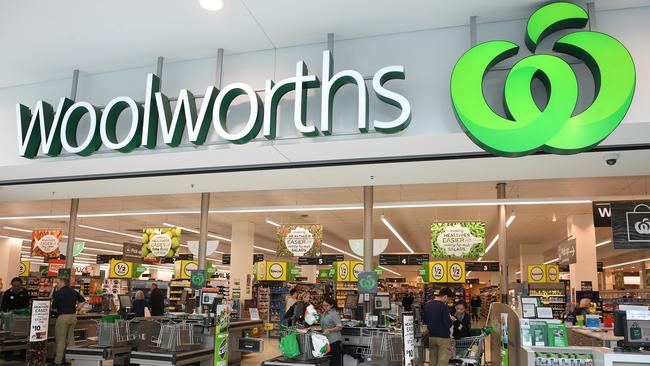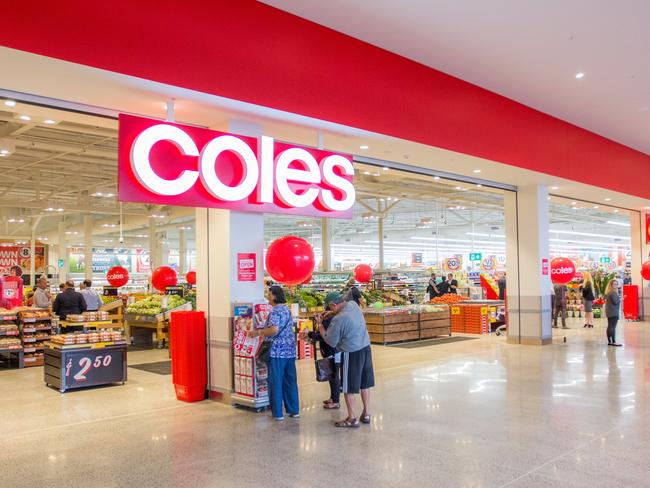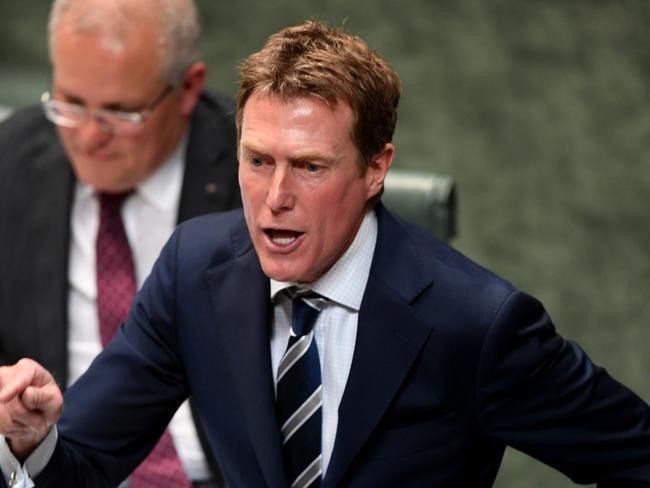Woolworths to pay back over $400m as underpayment scandal grows
The bill for Woolworths’ underpayment scandal is set to go over $400 million as the number of workers short-changed balloons to 7000.
News
Don't miss out on the headlines from News. Followed categories will be added to My News.
The bill for Woolworths’ underpayment scandal is set to break through $400 million as the number of workers short-changed balloons to 7000.
The nation’s biggest supermarket chain today said an ongoing review of its workforce has so far identified $315 million in underpayments.
Woolworths will also absorb $80 million in compensation payments linked to missing wages and superannuation, as well as the cost of running the probe.
That takes the total bill to date to $395 million.
But it is set to rise as the review has only probed five years of payroll and time sheet data from Woolworths businesses which cover its core supermarkets as well as Dan Murphy’s, BWS and Big W.

Another four years of data is yet to be reviewed.
The retailer also expects its ongoing annual wage bill will rise by between $35 million to $45 million in the wake of the underpayments being identified.
Woolworths chief Brad Banducci said staff and shareholders had “every right to be frustrated and disappointed” by the underpayments, but he stressed they were not deliberate.
“We are working hard to finalise the review and repay impacted team members as soon as possible,” he said.
Woolworths has paid out $78 million in back pay and compensation.
Impacted workers will receive their back pay as well as 5.5 per cent per annum compensation calculated in six month blocks for the period of underpayment.
The retail giant has hired former Fair Work Australia commissioner Greg Harrison to independently review any back pay calculations questioned by staff.
Woolworths announced in late October it had short-changed 5700 workers between $200 million and $300 million in wages and super.
Mr Banducci said the number of impacted workers now stood at 7000 – 1300 more than first estimated.
MORE NEWS:
Aussie scientist helps coronavirus breakthrough
Last chance to enter your top dog
WikiLeaks password ‘leaked by journalists’
Hidden risks of weight gain after breast cancer
Bank of America retail analyst David Errington said the size of the underpayments – which dwarfs those announced by other major retailers including Coles and Bunnings – pointed to serious lapses in the culture of Woolworths’ executives and board.
“The magnitude of Woolworths is a huge outlier here and it is just extremely disappointing,” he said.
Coles last week said it was setting aside $20 million to cover underpayments impacting 600 workers over a six-year period while Target has fessed up to short-changing workers $9 million.
The rising cost of Woolworths’ underpayment bill was revealed as it posted a 7.7 per cent slide in net profit to $887 million for the 27 weeks to January 5 compared to the same period a year earlier.
The hit to the bottom line came as it absorbed costs from the separation of its drinks and pubs unit and underpayment of staff.
Underlying net profit, which strips out one-offs, was up 8.5 per cent to $979 million.
Sales across the group rose 6 per cent to $32.4 billion while online sales were up 31.6 per cent to $1.65 billion.
Sales in its core Australian supermarkets business rose 6.4 per cent to $21.2 billion but Woolworths’ lead in like-for-like sales growth against Coles narrowed to its lowest point in two years over Christmas.
Like-for-like sales strip out the impact of stores opening and closing
WESFARMERS ADMITS TO RIPPING OFF STAFF
Last week, Wesfarmers announced it had uncovered $24 million in “payroll errors” in a first-half result buoyed by the performance of Bunnings, Kmart and Officeworks stores but weighed down by a worse-than-expected slump at Target.
The firm on Tuesday identified in its results for the six months to December 31 a $9 million payroll remediation for Target and a $15 million remediation in its industrial and safety division.
The announcement followed an admission by Coles saying it was expecting a $20 million hit after managers at its supermarkets and liquor division were underpaid over the past six years.
“Following the payroll errors previously identified, Wesfarmers’ businesses have conducted extensive reviews of their respective payroll systems and processes,” the company said in its release to the ASX.
“As a result of these reviews, some additional payroll errors have been identified.”

In its earnings result, Wesfarmers’ net profit from continuing operations was $1.14 billion for the half - up 6.0 per cent from $1.08 billion a year ago not accounting for new lease standards - as revenue climbed 6.0 per cent to $15.25 billion.
Earnings from continuing operations - not accounting for interest on lease liabilities - fell 0.5 per cent to $1.64 billion.
Factoring in the impact of the new leasing standards and discontinued operations, statutory net profit dropped to $1.21 billion from $4.54 billion a year ago when the company’s coffers were flush after the demerger with Coles and divestment of Bengalla.
As such, the company’s interim dividend has been shaved to 75 cents per share, fully franked, down from a fully franked $1 interim dividend a year ago, when a $1 special dividend was also paid.
Wesfarmers also announced yesterday it had sold a 4.9 per cent stake in Coles for $1.05 billion.
WHY WORKERS ARE BEING RIPPED OFF
As companies fess up to underpaying workers, the Australian Payroll Association (APA) has revealed why some of these underpayments are occurring.
The APA’s CEO Tracy Angwin told News Corp Coles has found it itself in a position of finding employee underpayments due to a lack of reconciling how employees are being paid compared to what they should be being paid.
“The situation is made worse by the fact that for most large employers, the vast majority of their payroll teams do not have a minimum qualification of Certificate IV in Payroll Administration, yet they manage what is likely the employers largest cost,” she said.
“According to the APA Payroll Benchmarking report, 90 per cent of people working in payroll do not have a payroll qualification.
“This seems extraordinary that employers are not recruiting or investing in qualified payroll staff given the size and regularly of corporate underpayments.”
Ms Angwin said employers also need to ensure that their payroll staff have access to specialist payroll support to keep up to date with the regular payroll legislation changes including that relating to annualised salaries coming into effect on March 1, to ensure they are remain compliant, not just compliant at a point in time.
“That way companies can avoid making headlines for their payroll errors,” she said.
Her comments come as Coles reported its near-flat half-year earnings of $725 million on Tuesday, and revealed about one per cent of its total team members had been underpaid due to differences between their remuneration and the General Retail Industry Award (GRIA).
The pool of money covers $16 million in underpayments relating to supermarket workers and $4 million for liquor workers.
The underpayments cover a six-year period and the bill also includes compensation.
Coles said the underpayments were not deliberate and impacted less than 1 per cent of its workforce.
The supermarket giant is continuing to probe its books for further underpayments, it said.
Coles boss Steven Cain apologised to staff, saying: “We aim to make Coles a great place to work, and apologise to those team members who have been unintentionally affected.
“We are working at pace with a team of external experts to finalise our review.
“Once completed we will contact all affected team members, both current and former, to remediate any identified differences in full.
“Coles has implemented steps to improve our systems and processes.”
Rival Woolworths late last year admitted it had short-changed close to 6000 workers up to $300 million in what stands as the nation’s biggest ever underpayment breach.
A string of business have owned up to underpayment workers over the past two years including Bunnings, Qantas Airways, Commonwealth Bank, Maurice Blackburn, Michael Hill International, Super Retail Group, IBM and the Australian Broadcasting Corporation.
The news comes as companies, which rip off workers, could be forced to name and shame themselves with public signs and be banned from employing vulnerable migrants.

MORE NEWS
Dinner by Heston’s collapse: What went wrong
Aussies caught in underpayment hangover
PM pours $2m to smash coronavirus
New measures being considered in Canberra to crack down on the underpayment of workers could also include company directors being disqualified from holding office.
Attorney-General Christian Porter is set to bring legislation to parliament to make it a criminal offence to exploit workers, including fines and jail terms.
“Like most Australians, the government has been appalled by the number of companies that have recently admitted short-changing their staff, in some cases by hundreds of millions of dollars,” Mr Porter said.
“While it’s understood the vast majority of these underpayments were not deliberate and were rectified swiftly, they are incredibly serious and border on negligence, given we are talking about sophisticated organisations that should be capable of meeting their obligations under workplace law.”

The Australian reported that Mr Porter has also expressed support for an ACTU proposal allowing individual workers to go to the Fair Work Commission to have underpayment claims dealt with quickly and efficiently.
“The Coalition has already increased some civil penalties by a factor of 10, but it is clear to me that more still needs to be done … such as disqualifying directors of organisations that continue to get it wrong,” Mr Porter said.
Labor leader Anthony Albanese said wage theft was a huge issue that was all too prevalent across Australia.
“This government attacks unions day-in, day-out,” he told reporters in Brisbane.
“They prepared to defend the sort of behaviour that we have seen become all too prevalent. They have very little to say about this exploitation, which is what it is.”

The proposed changes come after celebrity chef George Calombaris was revealed to have underpaid his staff by millions of dollars.
His food empire is now on the brink of collapse.
More than 400 staff are set to remain in limbo as administrators try to find new owners to keep some of the 12 venues open.
Any deals are now expected to be announced by the creditors meeting on Thursday in Melbourne.
The door could still be ajar on several venues with buyer interest in Gazi and Jimmy Grants venues.
Calombaris’ MADE Establishment business last Monday appointed restructuring experts KordaMentha over 12 restaurants as it collapsed into voluntary administration.
Originally published as Woolworths to pay back over $400m as underpayment scandal grows
